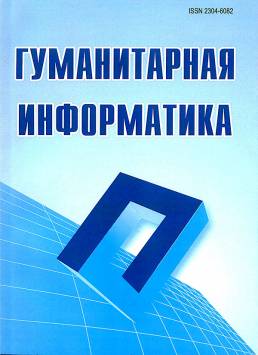QUALITY MANAGEMENT AS A CONDITION FOR THE DEVELOPMENT OF E-LEARNING IN A MODERN UNIVERSITY
This paper presents the results of Tomsk State University experience in e-learning quality assurance basing on such indicators as the quality of learning materials, delivery systems, communication, and learning process support. Opportunities for managing these indicators are reviewed with the help of the LMS MOODLE with basic instruments and specially designed services as a part of university information learning environment and infrastructure. One of the effective ways of learning materials’ quality evaluation is their review by experts in a subject content and e-learning methods and technologies. Introduction of the e-learning courses that passed the review indicates productivity of professional activities of the university instructor. The key review stages of TSU on-campus e-learning courses are concentrated within a certain department. The course content review is performed by the specialists in the subject area of the MOOC. The expert should provide valid conclusions about the MOOC materials in general, constructive feedback, recommendations and suggestions on improving the MOOC. The most difficult stage of learning materials’ quality evaluation is work with social media and cloud services, as the materials there are marked by high mobility and variability. In this regard TSU staff uses by developing the course content in the LMS MOODLE those cloud based apps that expand the LMS functionality without its duplicating. The quality indicators of learning process support and related pedagogical communications are the most difficult to be measured. At TSU there is developed a service of users’ activity monitoring in LMS MOODLE to work with these indicators. The service is available as an auxiliary application in the LMS MOODLE to the staff of dean's offices and specialists responsible for e-learning in each university department. For quality evaluation of MOOC learning process support by course authors or their assistants a TSU MOOC curator on the Coursera platform monitors the admin board and analyses learners’ and instructors’ activity at course forums day-to-day. For identification of e-learning evaluation criteria from the users’ position there was held a pedagogical experiment with 23 TSU Master's degree students. The students were offered to state the e-learning evaluation criteria. The criteria were combined in five categories: quality of teaching materials, learning process management, individualization of learning, pedagogical communication, test and assessment system.
Keywords
электронное обучение, LMS MOODLE, МООК, мониторинг активности пользователей, e-learning, LMS MOODLE, MOOC, users activity monitoringAuthors
| Name | Organization | |
| Olesya M. Babanskaya | National Research Tomsk State University | babanskaya@ido.tsu.ru |
| Galina V. Mozhaeva | National Research Tomsk State University, Tomsk, Russia | mozhaeva@ido.tsu.ru |
| Artem V. Feshchenko | National Research Tomsk State University, Tomsk, Russia | fav@ido.tsu.ru |
References
